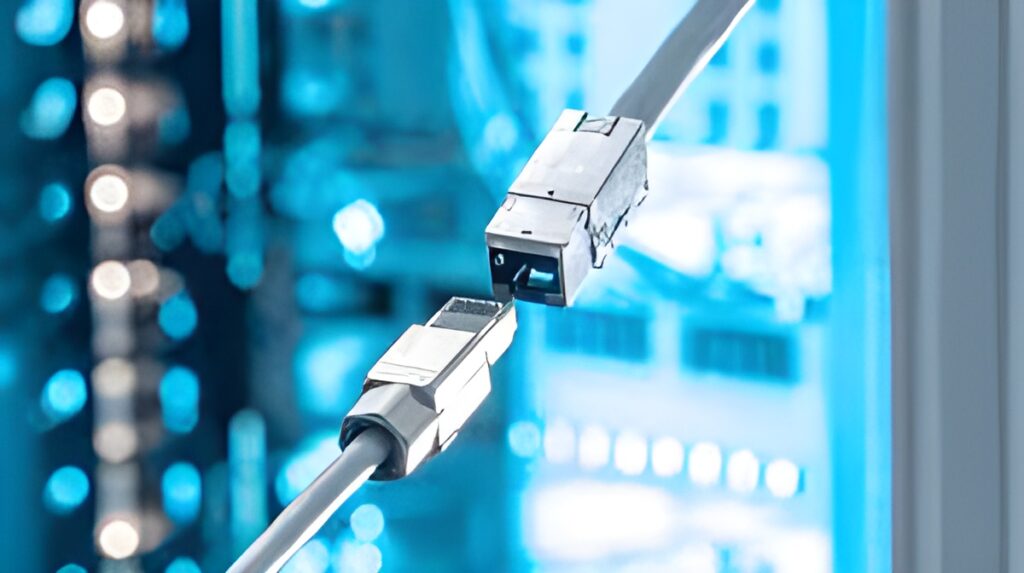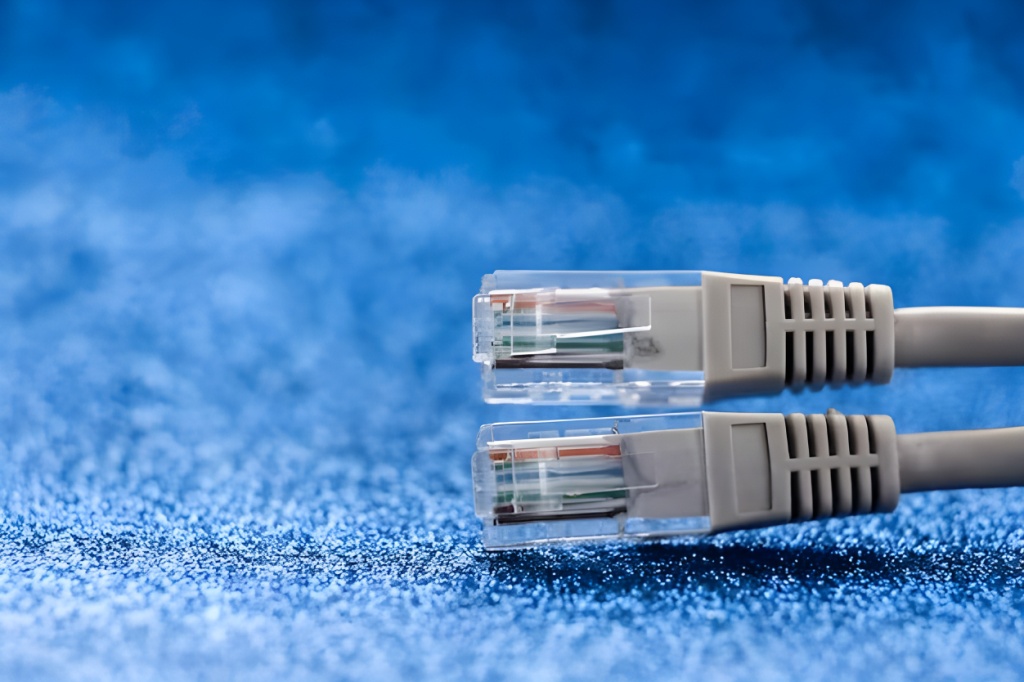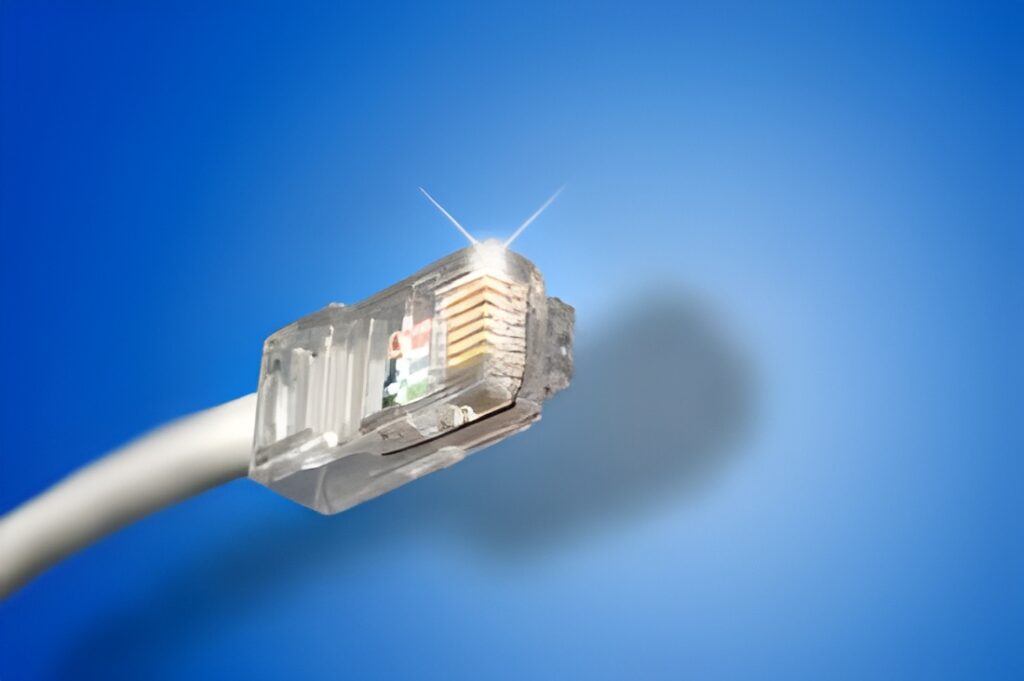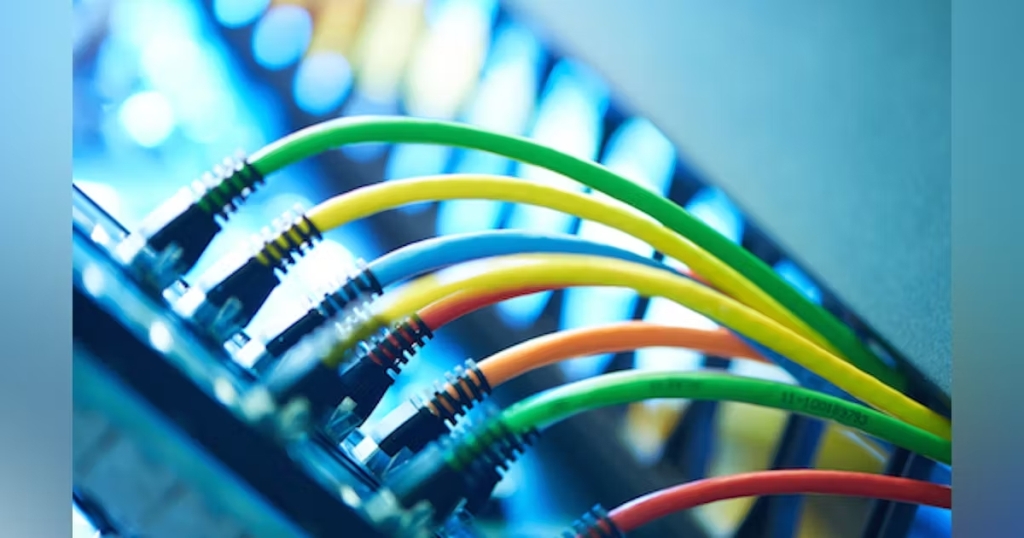A Cat 7 connector, also known as Category 7 or Cat7, is an advanced Ethernet cable widely used for high-speed network connections in Dubai, a thriving city in the United Arab Emirates (UAE). Cat 7 cables offer impressive data transmission rates and enhanced shielding, making them ideal for demanding applications, such as data centers and smart infrastructure projects. Their capability to deliver reliable, high-bandwidth connectivity makes them a popular choice for businesses and individuals in the UAE seeking top-tier networking solutions.
I. Cat 7 Connector RJ45

- Faster speeds: Cat 7 connector RJ45 supports speeds of up to 10 Gbps, which is 10 times faster than Cat 6 connectors.
- Reduced interference: Because Cat 7 connectors RJ45 are insulated, interference from other electrical equipment and cables is lessened.
- More durable: Because Cat 7 connections RJ45 are constructed with premium materials, they are more robust than Cat 6 connectors.
- Faster streaming and downloads: Cat 7 connector RJ45 can help you stream video and download files more quickly.
- Improved gaming performance: Cat 7 RJ45 connectors can help you play games more smoothly by cutting down on jitter and latency.
- More reliable connections: Cat 7 connector RJ45 is less likely to experience connection problems, which can help you stay connected to the internet and your network devices.
- Compatibility: Make sure to choose a connector that is compatible with your Cat 7 cable.
- Shielding: Choose a shielded connector to reduce interference.
- Construction: Select a connector that has been constructed with premium materials.
II. Cat 7 Connectors vs Cat 6

- Higher speed: Cat 7 connectors can support speeds of up to 10 Gbps, while Cat 6 connectors are limited to 1 Gbps.
- Higher frequency: Cat 7 connectors are rated for transmission frequencies of up to 600 MHz, while Cat 6 connectors are rated for 250 MHz.
- Better shielding: Cat 7 connectors have more shielding than Cat 6 connectors, which can help reduce interference and noise.
- More expensive: Cat 7 connectors are more expensive than Cat 6 connectors.
Cat 6 Connector
- More common: Cat 6 connectors are more common than Cat 7 connectors, so they are easier to find and less expensive.
- Backward compatible: Cat 6 connectors are backward compatible with Cat 5e and Cat 5 connectors, so you can use them with existing networks.
- Sufficient for most applications: For most home and office networks, Cat 6 connectors provide sufficient speed and performance.
Selecting a Cat 7 connector is the best option if you require the fastest potential speed and performance. However, if you are on a budget or you only need a moderate amount of speed, then Cat 6 connectors are a good option.
A. Which Ethernet Cable Do I Need?

For most residential and small business networking needs, a Category 6 (Cat 6) Ethernet cable is a good choice. It can handle data speeds up to 1 Gbps, making it suitable for tasks like internet browsing, streaming, and online gaming. If you require even higher speeds or plan to future-proof your setup, consider a Category 6A (Cat 6A) or Category 7 (Cat 7) cable, which can support 10 Gbps and beyond.
B. What Connector Does Cat7 Use?
Cat7 Ethernet cables typically use GG45 or TERA connectors, which are designed to provide improved performance and support higher data transfer rates compared to the standard RJ45 connectors used in Cat5e and Cat6 cables. These connectors are more advanced and have additional shielding to reduce crosstalk and interference, making them suitable for high-speed data transmission in demanding networking environments.
C. Are Cat6 and Cat7 Connectors The Same?

Yes, Cat6 and Cat7 connectors are the same. Both cables use the standard RJ45 connector. However, Cat7 cables require shielded connectors to maintain their higher frequency performance.
- Same physical size and shape
- Same pin configuration
- Compatible with the same RJ45 ports and jacks
- Cat7 cables require shielded connectors to maintain their higher frequency performance.
- Cat7 connectors may be slightly more expensive than Cat6 connectors.
Cat6 and Cat 7 connectors are essentially the same, with only one minor difference: Cat7 cables require shielded connectors. If you are installing a Cat7 cable, be sure to use shielded connectors to ensure optimal performance.